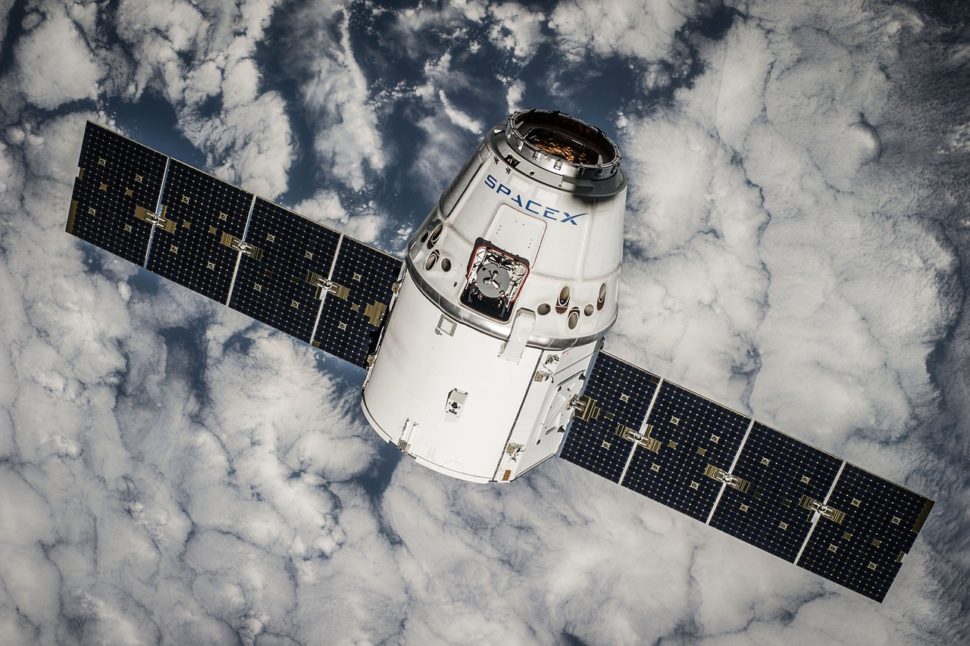In a recent tweet, Elon Musk has revealed the current speed of Starlink‘s internet service. He also claims that it’ll double to 300 Mbps this year.
Two years ago, a private space company, SpaceX, began launching its network of Starlink satellites into Earth’s lower orbit. The company’s aim was apparent — to control a massive share of the future internet.
Thanks to its satellite network, SpaceX can offer “fast, reliable internet to locations where access has been unreliable or expensive.”
Currently, SpaceX has launched over 1,000 of its proposed 42,000 Starlink satellites. However, the satellite cluster is already in operation high in the clouds.
So, it wasn’t surprising when the space company started a beta test internet service in the summer of 2020.
For $99 a month, select users were able to access broadband beamed down from space. Then, earlier this month, SpaceX opened up the service to more people via an online application on its website.
Today, over 10,000 people are using Starlink’s internet service.
SpaceX’s CEO, Elon Musk, discusses upcoming improvements to internet service’s speed in a recent tweet.
Elon Musk on Starlink Internet Speed and Latency
SpaceX promises an internet speed that’s between 50 and 150Mbps, and that appears to be the case — so far.
An individual who had just received their Starlink beta kit uploaded an image of the dish and a screenshot of a speed test of 130Mbps. In response, Elon Musk stated that the goal is 300Mbps this year.
Admittedly, 300Mbps is not particularly exciting as far as broadband speed goes.
However, that’s significantly faster than the internet speed in several homes. This is especially true in the low-to-medium density areas that Musk talks of targeting.
The SpaceX chief also promised an improved latency — the time it takes for data to transfer between a source and its destination.
At the moment, the Starlink website states that latency should be between 20 and 40ms during the beta. But, according to Elon, it should improve to around 20ms.
The Starlink initiative could deliver affordable internet to millions of people. However, scientists point out that the bright satellites could also end astronomy as we know it.



















One has to be careful with the brokers on the internet now. Last year I was scammed in the binary trade option by a broker I met on Instagram. I invested $14000 which I lost, I couldn’t make a withdrawal and I slowly lost access to my trade account for 3 months I was frustrated and depressed. After a few months, I met Jeff Silbert who is A recovery expert that works in affiliation with the Federal Bureau of Investigation (FBI) and other law firm. he worked me through the process of getting my money back and all the extra bonus which I got during my trading. he can be of help to anyone who has a similar situation. You can contact him via his
mail: jeffsilbert39 @gmail. Com
WhatsApp +84 94 767 1524
HAVE YOU LOST OR BEEN RIPPED OF YOUR CRYPTO CURRENCIES, AND WANT TO GET IT BACK???
Have you gotten your bitcoins stolen from your wallet or invested in an ICO that turned out to be a scam, you are not alone because this happened to me too. I initially lost $96,000 in just less then five months from Fake investment scam company. My friend referred me to a hacker who helped me recover all my funds within 3 days. I’m speaking up to improve awareness of these cryptocurrency thieves and help as much as i can to reduce victims to the minimum. If you have been a victim, Simply contact Them ( MorrisGray830 at Gmail Dot Com )or whatsapp ( +1 607 698 0239 )
STOLEN OR LOST CRYPTOCURRENCY RECOVERY.
NO UPFRONT FEES
There is only one way to recover lost and stolen crypto and that is by contacting a recovery company. That best hiring company for recovery is HIGHJACKTECH ,take it from someone who already got help from them and i am glad to tell you all i successfully recovered my money from scam after reaching out to them for help….
“HIGHJACKTECH ART GEE MAIL DOT COM”
WHATSAPP: +1 856 219 0486
101 N BRAND BLVD.
11TH FLOOR GLENDALE CA 91203
STOLEN OR LOST CRYPTOCURRENCY RECOVERY.
Can lost Bitcoin be Found or Retrieved?
Generally speaking, whether
lost bitcoin can be found or not depends on how it was lost. Considering
the quantity of missing cryptocurrency out there, people have begun
offering services to help recover lost bitcoin. These include data
recovery specialists, but you need a professional recovery expert like
Mr BRUCE to help you get back your lost bitcoin.
Contact them to
recover lost bitcoin, bitcoin cash, as well as all other forms of
cryptocurrency. And you can be sure that no matter how long it has been
lost, you will still get your bitcoin worth.
Contact our support team for further assistance:
HIGHJACKTECH ART GEE MALE DOT COM
WHATSAPP: +1 856 219 0486
NO UPFRONT PAYMENT!
101 N BRAND BLVD.
11TH FLOOR GLENDALE CA 91203
HOW I RECOVER MY LOST BTC WALLET THROUGH OMEGA CRYPTO RECOVERY SPECIALIST
I am by name Dung Hung from Ho Chi Minh City, Vietnam. Losing a BTC wallet can be a nightmare for anyone who has invested a lot in cryptocurrency. Unfortunately, I found myself in this exact situation a few days ago when I realized that I had lost my BTC wallet. The panic and anxiety that came with losing something so valuable were overwhelming, and I was desperate to find a solution. After extensive research, I finally decided to reach out to OMEGA CRYPTO RECOVERY SPECIALIST, a recovery service that helped me recover my lost BTC wallet. I am a living testifier and I am putting this out here to anyone who also requires their service. They are fast and reliable
Contact Line;
www . omegarecoveryspecialist . c o m
+1 (251), 2 16. 64 6 6
Mail; support@omegarecoveryspecialist . c o m
I have finally recovered all the lost crypto which i made to some fake crypto trading company with the help of Jeff Silbert a financial recovery expert. After months of waiting for this company to accept my withdrawal request which they denied, They locked my account and stopped responding to my mails. he helped me to recover all my money from them. She trusted and honest All thanks to Jeff and you can contact him via em ail on jeffsilbert 39 g mail Com or whatapp + 1 (470 ) 469-9769
Thank you TrustGeeks Hack Expert For having a professional team, patience, and support that have been instrumental in our journey. Your introduction to the world of cryptocurrency recovery has not only empowered us but has also led to our recent home purchase, A testament to the success we’ve achieved together in getting the huge amount of money we had lost in the hands of fraudsters. Thank you for having a dedicated and professional team in your company and a friend on this incredible journey. We are forever grateful for the joy you’ve brought into our lives, I recommend anyone who lost their investment in cryptocurrency to fraud should contact TrustGeeks Hack Expert To recover all your lost investment. At: Telegram: (At) Trustgeekshackexpert or WhatsApp 1.4.0.6. 2.1.8.6.9.0.0
HAVE YOU LOST OR BEEN RIPPED OF YOUR CRYPTO CURRENCIES, AND WANT TO GET IT BACK???
Have you gotten your bitcoins stolen from your wallet or invested in an ICO that turned out to be a scam, you are not alone because this happened to me too. I initially lost $96,000 in just less then five months from Fake investment scam company. My friend referred me to a hacker who helped me recover all my funds within 3 days. I’m speaking up to improve awareness of these cryptocurrency thieves and help as much as i can to reduce victims to the minimum. If you have been a victim, Simply contact Them ( MorrisGray830 at Gmail Dot Com )or whatsapp ( +1 607 698 0239_